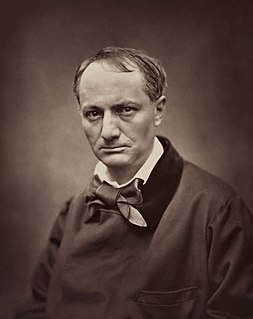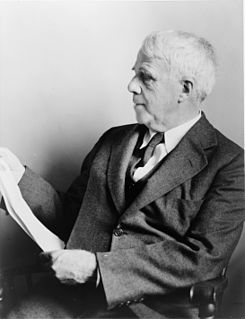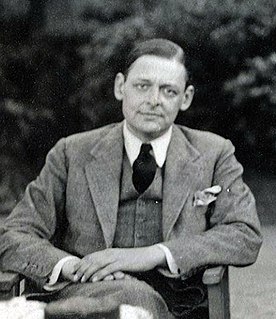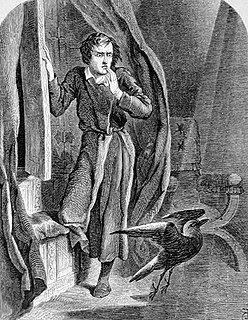This article does not cite any sources .(February 2015) (Learn how and when to remove this template message) |
To Saxham is a poem written by Thomas Carew and published in 1640.
This article does not cite any sources .(February 2015) (Learn how and when to remove this template message) |
To Saxham is a poem written by Thomas Carew and published in 1640.

Beowulf is an Old English epic poem consisting of 3,182 alliterative lines. It is one of the most important works of Old English literature. The date of composition is a matter of contention among scholars; the only certain dating pertains to the manuscript, which was produced between 975 and 1025. The anonymous poet is referred to by scholars as the "Beowulf poet".

Charles Pierre Baudelaire was a French poet who also produced notable work as an essayist, art critic, and pioneering translator of Edgar Allan Poe.

An epic poem, epic, epos, or epopee is a lengthy narrative poem, ordinarily involving a time beyond living memory in which occurred the extraordinary doings of the extraordinary men and women who, in dealings with the gods or other superhuman forces, gave shape to the moral universe for their descendants, the poet and his audience, to understand themselves as a people or nation.

Homer is the semi-legendary author of the Iliad and the Odyssey, two epic poems that are the central works of ancient Greek literature. The Iliad is set during the Trojan War, the ten-year siege of the city of Troy by a coalition of Greek kingdoms. It focuses on a quarrel between King Agamemnon and the warrior Achilles lasting a few weeks during the last year of the war. The Odyssey focuses on the ten-year journey home of Odysseus, king of Ithaca, after the fall of Troy. Many accounts of Homer's life circulated in classical antiquity, the most widespread being that he was a blind bard from Ionia, a region of central coastal Anatolia in present-day Turkey. Modern scholars consider these accounts legendary.

"Jabberwocky" is a nonsense poem written by Lewis Carroll about the killing of a creature named "the Jabberwock". It was included in his 1871 novel Through the Looking-Glass, and What Alice Found There, the sequel to Alice's Adventures in Wonderland (1865). The book tells of Alice's adventures within the back-to-front world of Looking-Glass Land.

"Ozymandias" is the title of two related sonnets published in 1818. The first was written by the English Romantic poet Percy Bysshe Shelley (1792–1822) and was published in the 11 January 1818 issue of The Examiner of London. The poem was included the following year in Shelley's collection Rosalind and Helen, A Modern Eclogue; with Other Poems, and in a posthumous compilation of his poems published in 1826. Shelley's most famous work, "Ozymandias" is frequently anthologised.

Poetry is a form of literature that uses aesthetic and often rhythmic qualities of language—such as phonaesthetics, sound symbolism, and metre—to evoke meanings in addition to, or in place of, the prosaic ostensible meaning.

Robert Lee Frost was an American poet. His work was initially published in England before it was published in America. Known for his realistic depictions of rural life and his command of American colloquial speech, Frost frequently wrote about settings from rural life in New England in the early twentieth century, using them to examine complex social and philosophical themes.

Sylvia Plath was an American poet, novelist, and short-story writer. She is credited with advancing the genre of confessional poetry and is best known for two of her published collections, The Colossus and Other Poems and Ariel, as well as The Bell Jar, a semi-autobiographical novel published shortly before her death. In 1982, she won a posthumous Pulitzer Prize for The Collected Poems.

Thomas Stearns Eliot was a poet, essayist, publisher, playwright, literary critic and editor. Born in St. Louis, Missouri, to a prominent Boston Brahmin family, he moved to England in 1914 at the age of 25 and went on to settle, work and marry there. He became a British subject in 1927 at the age of 39, subsequently renouncing his American citizenship.

Wystan Hugh Auden was a British-American poet. Auden's poetry was noted for its stylistic and technical achievement, its engagement with politics, morals, love, and religion, and its variety in tone, form and content. Some of his best known poems are about love, such as "Funeral Blues"; on political and social themes, such as "September 1, 1939" and "The Shield of Achilles"; on cultural and psychological themes, such as The Age of Anxiety; and on religious themes such as "For the Time Being" and "Horae Canonicae".

William Wordsworth was an English Romantic poet who, with Samuel Taylor Coleridge, helped to launch the Romantic Age in English literature with their joint publication Lyrical Ballads (1798).

Publius Ovidius Naso, known as Ovid in the English-speaking world, was a Roman poet who lived during the reign of Augustus. He was a contemporary of the older Virgil and Horace, with whom he is often ranked as one of the three canonical poets of Latin literature. The Imperial scholar Quintilian considered him the last of the Latin love elegists. Although Ovid enjoyed enormous popularity during his lifetime, the emperor Augustus banished him to a remote province on the Black Sea, where he remained until his death. Ovid himself attributes his exile to carmen et error, "a poem and a mistake", but his discretion in discussing the causes has resulted in much speculation among scholars.

The Rime of the Ancient Mariner is the longest major poem by the English poet Samuel Taylor Coleridge, written in 1797–98 and published in 1798 in the first edition of Lyrical Ballads. Some modern editions use a revised version printed in 1817 that featured a gloss. Along with other poems in Lyrical Ballads, it is often considered a signal shift to modern poetry and the beginning of British Romantic literature.

"In Flanders Fields" is a war poem in the form of a rondeau, written during the First World War by Canadian physician Lieutenant-Colonel John McCrae. He was inspired to write it on May 3, 1915, after presiding over the funeral of friend and fellow soldier Lieutenant Alexis Helmer, who died in the Second Battle of Ypres. According to legend, fellow soldiers retrieved the poem after McCrae, initially dissatisfied with his work, discarded it. "In Flanders Fields" was first published on December 8 of that year in the London magazine Punch.

Poetic Edda is the modern attribution for an unnamed collection of Old Norse anonymous poems, which is different from the Edda written by Snorri Sturluson. Several versions exist, all primarily of text from the Icelandic medieval manuscript known as the Codex Regius, which contains 31 poems. The Codex Regius is arguably the most important extant source on Norse mythology and Germanic heroic legends. From the early-19th century onwards it has had a powerful influence on later Scandinavian literatures - not only through its stories, but also through the visionary force and the dramatic quality of many of the poems. It has also become an inspiring model for many later innovations in poetic meter, particularly in Nordic languages, offering many varied examples of terse, stress-based metrical schemes that lack any final rhyme but instead use alliterative devices and strongly-concentrated imagery. Poets who have acknowledged their debt to the Codex Regius include Vilhelm Ekelund, August Strindberg, J. R. R. Tolkien, Ezra Pound, Jorge Luis Borges, and Karin Boye.

"The Raven" is a narrative poem by American writer Edgar Allan Poe. First published in January 1845, the poem is often noted for its musicality, stylized language, and supernatural atmosphere. Sitting on a bust of Pallas, the raven seems to further distress the protagonist with its constant repetition of the word "Nevermore". The poem makes use of folk, mythological, religious, and classical references.

Emily Elizabeth Dickinson was an American poet.

The Waste Land is a poem by T. S. Eliot, widely regarded as one of the most important poems of the 20th century and a central work of modernist poetry. Published in 1922, the 434-line poem first appeared in the United Kingdom in the October issue of Eliot's The Criterion and in the United States in the November issue of The Dial. It was published in book form in December 1922. Among its famous phrases are "April is the cruellest month", "I will show you fear in a handful of dust", and the mantra in the Sanskrit language "Shantih shantih shantih".

Odin is a widely revered god in Germanic mythology. Norse mythology, the source of most surviving information about him, associates Odin with wisdom, healing, death, royalty, the gallows, knowledge, war, battle, victory, sorcery, poetry, frenzy, and the runic alphabet, and portrays him as the husband of the goddess Frigg. In wider Germanic mythology and paganism, the god was known in Old English as Wōden, in Old Saxon as Wōdan, in Old Dutch as Wuodanand in Old High German as Wuotan.
| This poetry-related article is a stub. You can help Wikipedia by expanding it. |